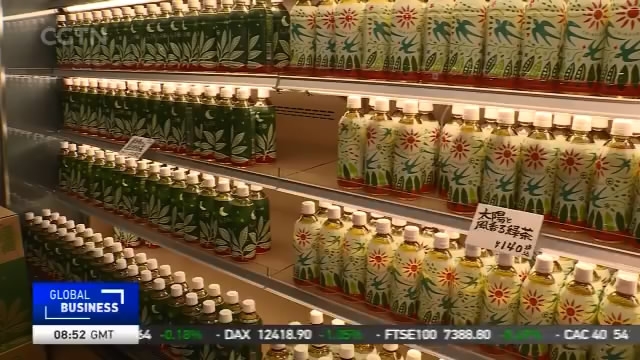
19:06, 25-Apr-2018
Japan Tea Season: Tea products grow in popularity
01:39

Tea is one of the most important field crops in Japan. The country turned out a total of 80 thousand tons of the product last year, with a value of 90 billion yen, or around 800-million US dollars. However, the number of tea-leaf consumers in Japan is declining. Guan xin finds out why.
Over 90 percent of tea on the Japanese market is green tea. Despite steady output, tea leaves are losing their appeal for Japanese consumers. Government data shows the average Japanese household bought 850 grams of tea leaves last year, down 20 percent compared to a decade ago. Why? It seems people simply don't have enough time to brew a fine pot of tea anymore. Today's fast-paced lifestyle has made them turn to much more convenient tea products, such as powder and bottled beverages. The data also showed the Japanese drank 22 liters of green tea soft drinks per capita last year, the highest on record.
TEA SALESMAN "Our main business is tea-leaf wholesale. But sales of tea products have seen a big jump, accounting for over 10 percent of our revenue last year. We are expanding in new areas, while keeping our traditional tea-sales business."
Aside from the growing popularity of tea beverages, scientists also discovered value in used tea leaves. One Japanese company has developed a way to add this waste to paper, textile and wood products. Those products are proving popular among consumers due to their special anti-bacterial and deodorizing properties.

SITEMAP
Copyright © 2018 CGTN. Beijing ICP prepared NO.16065310-3
Copyright © 2018 CGTN. Beijing ICP prepared NO.16065310-3